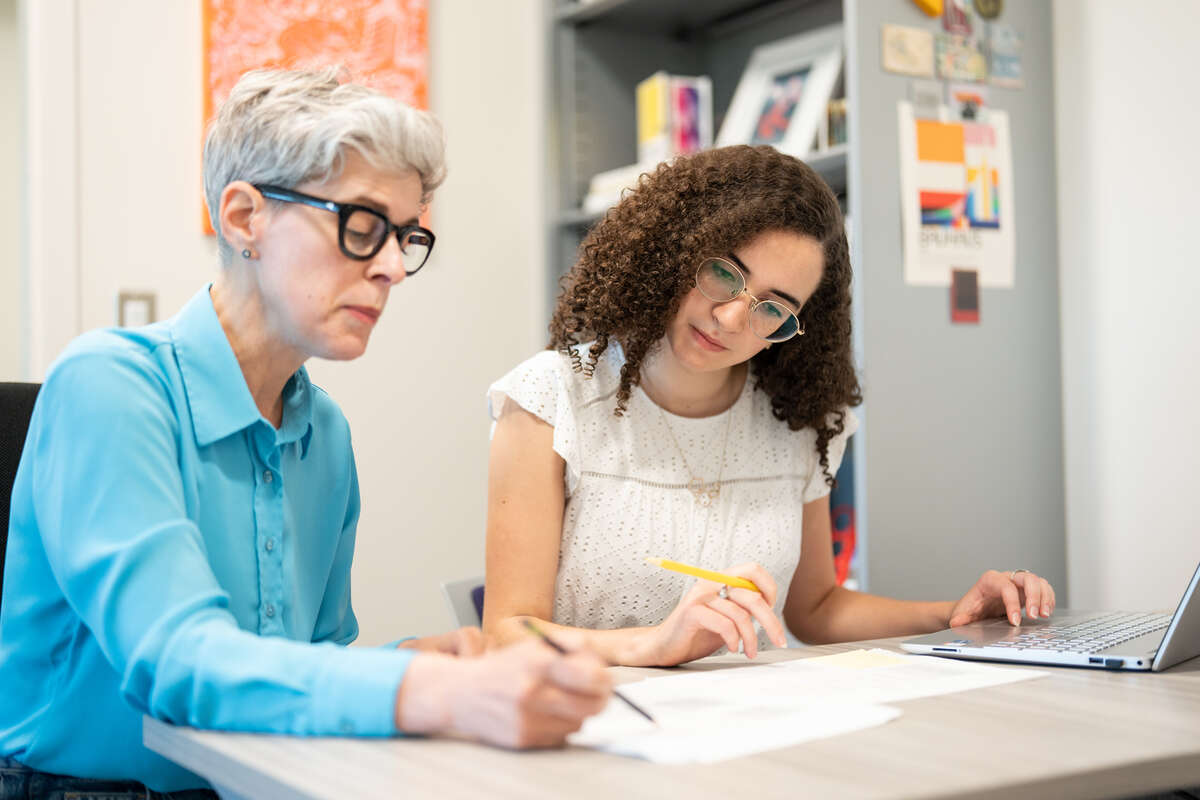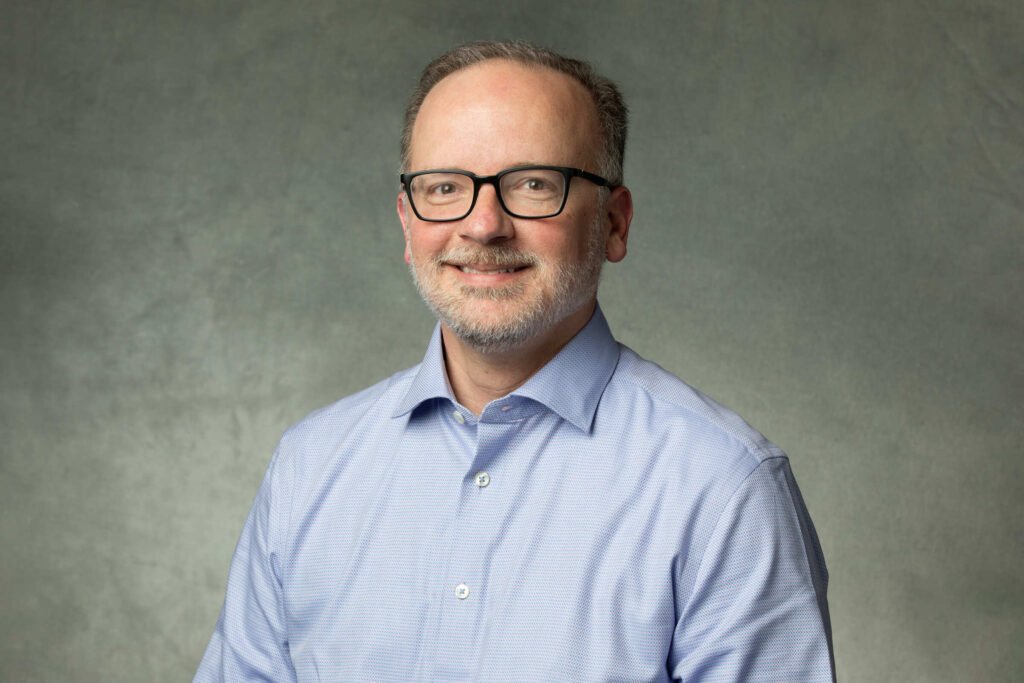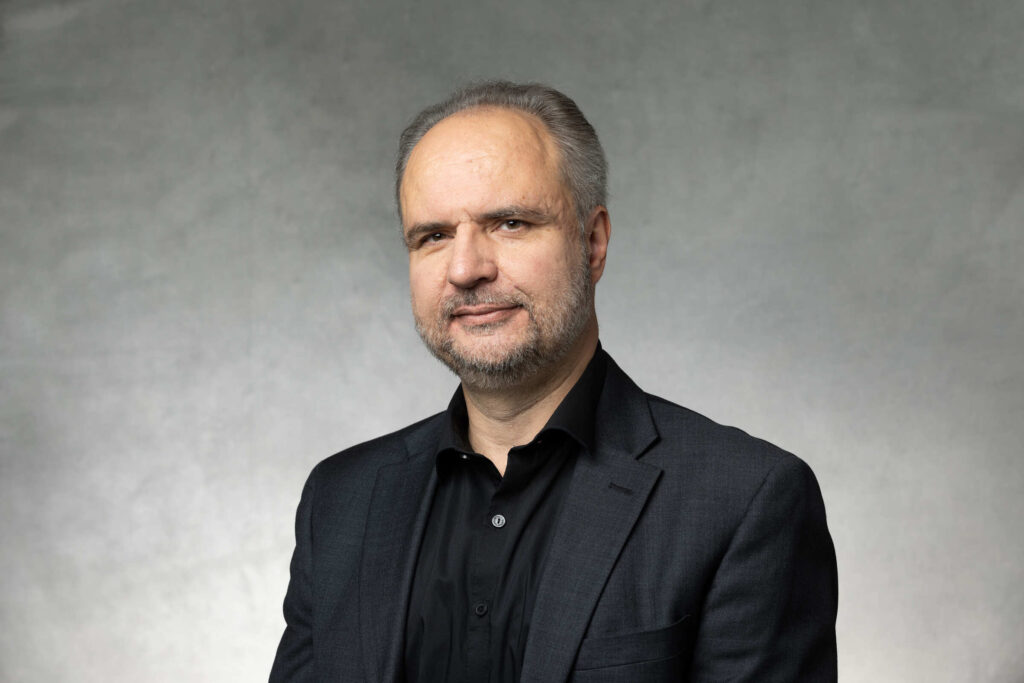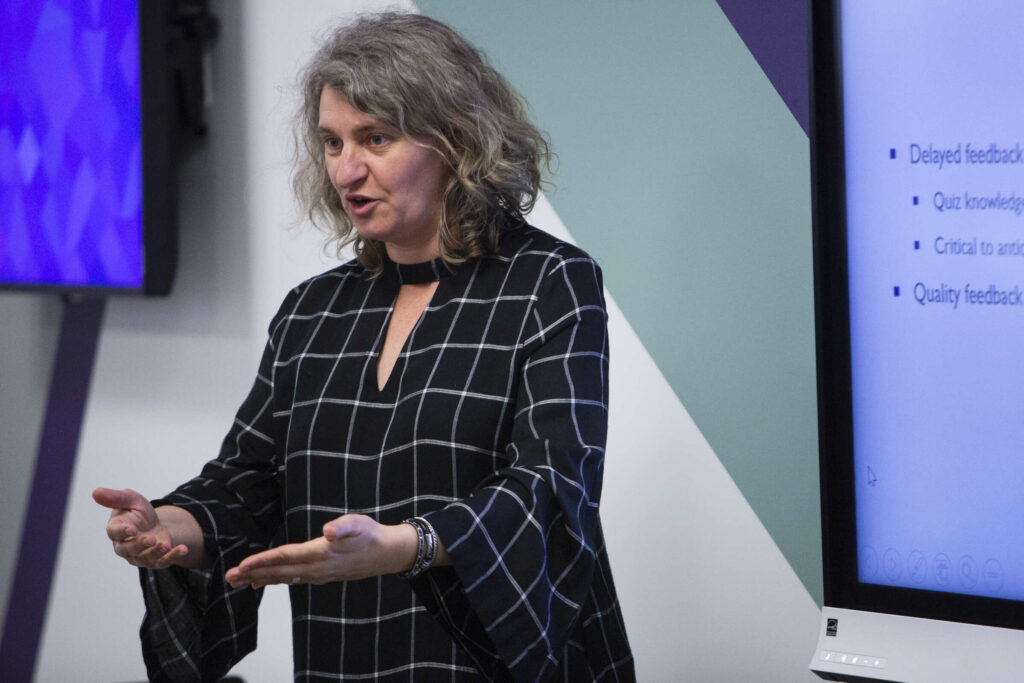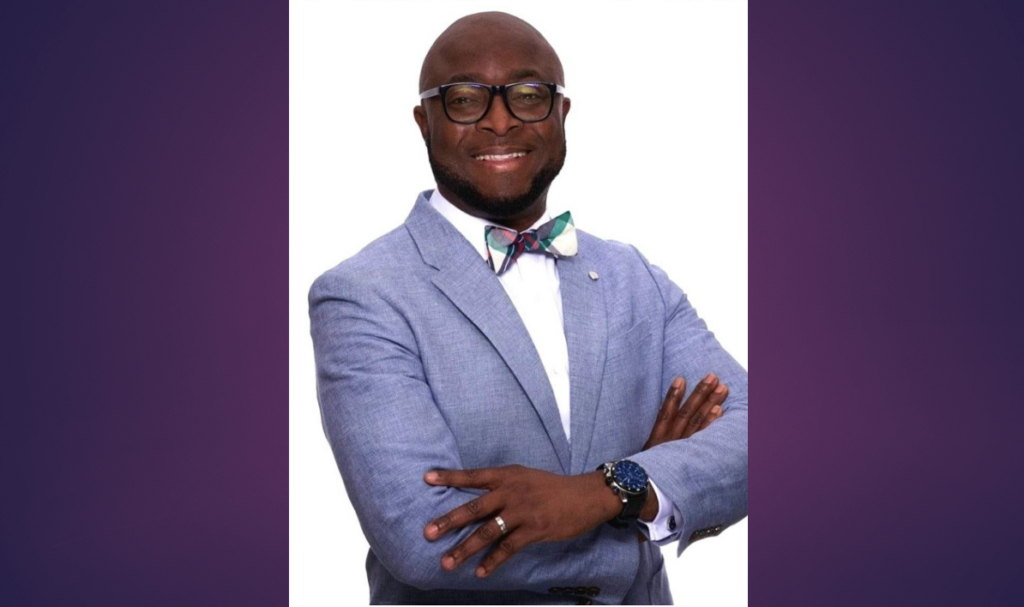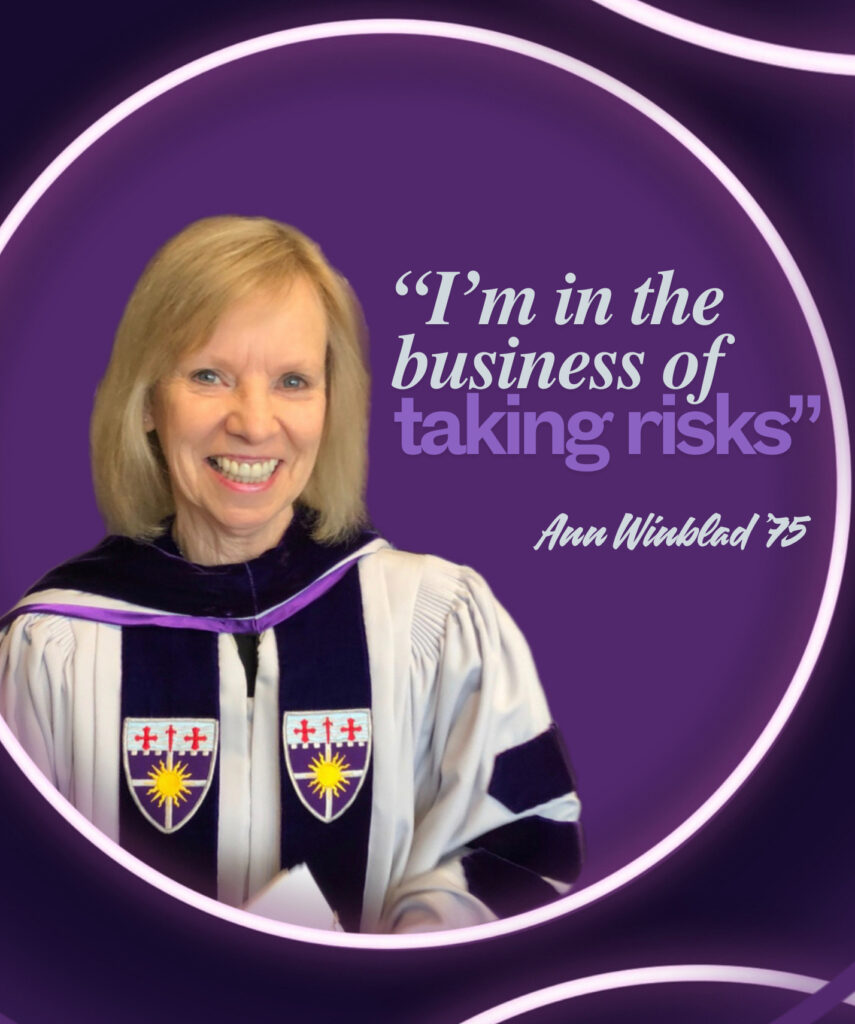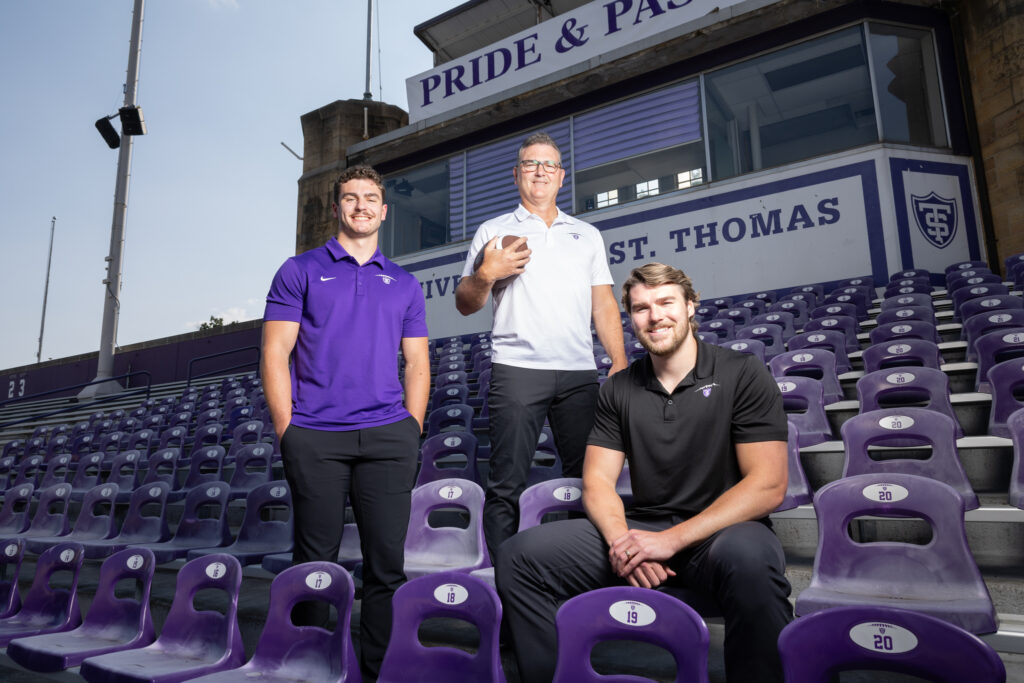Through the Undergraduate Research Opportunities Program (UROP), nearly 70 undergraduate students at the University of St. Thomas in Minnesota had the opportunity this summer to work with faculty mentors on a variety of research projects.
The program’s grant funding means that students get paid for their work and research. Forty-one Young Scholars, 12 Ignite Research Scholars, three Sustainability Scholars, eight Clare Boothe Luce Scholars and two Dougherty Family College Summer Scholars participated this summer.
The Newsroom connected with some of the student scholars to find out more about what they studied, what it’s like to work with a faculty mentor and how their research benefits their academic careers.
Name: Amelia Berry
Year: Junior
Major: Statistics
Research Title: “Effects of Light Exposure on the Schooling Behaviors of Invasive Silver and Bighead Carp”
Faculty Mentor: Brooke Vetter, Biology
Grant: Young Scholars
Describe what you’re researching this summer.
Silver and bighead carp are species of invasive fish that pose a threat to the native fish populations of the Great Lakes. This summer, I am investigating how different light conditions, such as daylight or moonlight, affect their schooling behavior. Because they are invasive, there is currently a lot of research being done on ways to keep them from harming native populations; most of this research focuses on deterrents and removal methods. If bighead carp are less likely to school in a certain light condition, if could decrease the effectiveness of deterrents and capture methods. Understanding the schooling behaviors of these fish can increase the number affected by one deterrent, aiding in the productivity of carp deterrent research and application.
What is the most interesting thing you’ve found so far in your research?
I was surprised by the number of obstacles that have come up through the process of planning and performing my project. Throughout all stages of my project, I have had to continuously change my plan or shift my approach to adjust to new findings. This often meant reading literature, looking to my academic adviser for advice, or trying out a new technique. So far, this experiment has shown me how important reflection, collaborative problem solving, and flexibility can be throughout the research process.
What has been the most valuable part of having funded research be part of your undergraduate experience at St. Thomas?
When I applied to research last summer, I had no prior research experience and didn’t think I would get a chance to conduct my own research until much later in my academic career. I was surprised when I was accepted to be in the Ignite Research Scholars program, which ended up being the perfect introduction to the world of research. My faculty adviser and others who I was connected with through the program helped me figure out my research interests and solidify my desire to continue on with research at St. Thomas. It prepared me to develop my own research project this summer on the Young Scholars grant. It has been great to work on my project full time this summer, allowing me to fully dive into the research experience.
What have been the biggest benefits of working with an academic adviser like you have this summer?
My academic adviser has played a huge role in my development as a researcher. When I first started with her last summer, she introduced me to the world of research and helped me find what projects might match my interests. She connected me to other faculty, students and researchers who have all provided helpful insights and resources that improved my research skills. She has guided me through the process of planning and performing my own research project and given advice when I have questions or run into problems.
Name: Grace Franceschi
Year: Junior
Major: Double major in strategic and business communication; minoring in sustainability
Research Title: “Beyond Numbers: Leveraging Storytelling and Navigating Industry Standards for Female Entrepreneurs”
Faculty Mentor: April Eichmeier, Emerging Media
Grant: Young Scholars
Describe what you’re researching this summer.
Over this summer, I explored storytelling, female entrepreneurs and intuition. When it comes to receiving funding for their start-ups, women receive less funding than men. At the same time, storytelling has been shown to be effective for pitches. I wanted to know if storytelling can close the gap between men and women when it comes to gaining funding. So, I developed a short story to use in a survey. The survey gathered data on people’s intuition, their attitudes toward the story, and their willingness to fund the entrepreneur in the story. The results offered interesting insights into how intuition and storytelling affect decision-making.
What is the most interesting thing you’ve found so far in your research?
I think some of the most interesting things I found over the summer were results from my survey. My survey collected information to see if intuition influenced willingness to fund, and it did! Intuition played a strong role in willingness to fund; it was more influential than gender, which I had predicted to have a strong variable. Another interesting part of this project was the research I did to pick out names for my story! I learned different names have different connotations, expectations, and perceived credibility, so I spent a lot of time looking for names to ensure the entrepreneurs were on equal footing.
What has been the most valuable part of having funded research be part of your undergraduate experience at St. Thomas?
I really enjoyed that having a funded research opportunity allowed me to focus on my project and improve my skills and understanding. Beside the financial support of the programs, the most valuable part of having my research project funded by St. Thomas was meeting and collaborating with different professors and other students. The Undergraduate Research Opportunities Program provided a few occasions for students to get together, and I loved to hear what they were working on. Overall, the funded research experience at St. Thomas not only helped me to learn more academic and quantitative skills, it also allowed me to interact with a collaborative community.
What have been the biggest benefits of working with an academic adviser like you have this summer?
One of the biggest benefits of having an academic adviser is having someone to talk to who has experience and can guide you, rather than having to learn everything on your own. This support was fantastic because it helped me to work quickly and make progress on my project. It’s also great to have someone to talk to who understands how your project works and can help you experiment with different possibilities. Dr. Eichmeier’s insights and encouragement really pushed me to expand my skills and understanding. Working with a knowledgeable mentor makes conducting research and exploring new ideas both fulfilling and fun!
Name: Katie Iverson
Year: Junior
Major: Accounting & business law and compliance
Research Title: “A Comparison of Fraud Investigation and Prosecution between Nonprofits and For-Profit Businesses”
Faculty Mentor: Stacey Supina, Ethics and Business Law
Grant: Young Scholars
Describe what you’re researching this summer.
I have been researching if fraud is treated the same in a nonprofit versus for-profit businesses. That involves researching the different accounting regulations that these types of businesses are required to follow, interviewing how investigators and prosecutors are navigating their roles, and analyzing current case studies such as the Feeding Our Future trial that just occurred recently.
What is the most interesting thing you’ve found so far in your research?
The most interesting thing that I’ve found in my research is that most people believe that audits from public accounting firms are used to detect fraud when in reality they only discover about 5% of fraud. Audits are used to make sure that financial statements are accurate and that the decisions an organization makes are reasonable but not necessarily always correct.
What has been the most valuable part of having funded research be part of your undergraduate experience at St. Thomas?
It’s allowed me to really prioritize my research this summer. I would have wanted to pursue this research regardless of being awarded this grant but being able to work on it nine-to-five has allowed me to pursue it at a higher level. It also allows me to conduct the interview components of my research at times during the day that are convenient for the professionals who are related to my work. This would have been very difficult without the flexibility this paid research has provided me if I were trying to balance a different job this summer.
What have been the biggest benefits of working with an academic adviser like you have this summer?
Research is very nonlinear. You discover new things that contradict a hypothesis or sometimes feel like you’ve exhausted all resources trying to answer a question. Dr. Supina has been a great resource in helping find new areas of discovery and also planning out milestones I should be trying to hit each week. She has really helped simplify this process for me!
Name: Shea Swenson
Year: Senior
Major: Strategic and business communication co-major; psychology minor
Research Title: “Behind the Scenes of the Bechdel Test: Exploring the Relationship Between Film Components and Female Representation”
Faculty Mentor: April Eichmeier, Emerging Media
Grant: Young Scholars
Describe what you’re researching this summer.
I am researching female representation in the film industry by looking at on-screen representation through the Bechdel Test and behind-the-screen representation through female leadership roles of production. The Bechdel Test is a way to identify on-screen female representation by testing whether a movie has at least two named female characters who have a conversation with each other about something other than a man. Surprisingly, only around 50% of movies pass this simple test. I am using this test to see if on-screen representation affects domestic and international box office success, and production budgets. I am also questioning whether the presence of female directors and screenwriter influence the movie’s budget and revenue, along with if female directors and writers make more movies that pass the Bechdel Test.
What is the most interesting thing you’ve found so far in your research?
The most interesting thing I’ve found through this research is the astonishing low numbers and slow growth of both on-screen and behind-the-screen gender representation. My results show that movies that pass the Bechdel Test make significantly more box office revenue, but film studios are only making roughly half of the movies pass the Bechdel Test, despite the clear payoff. Additionally, only around 5% of the movies in my sample were directed by females. With the film industry and the media being so influential and a way to portray the public, it is bizarre to me that there are clear gender disparities in one of the most popular industries.
What has been the most valuable part of having funded research be part of your undergraduate experience at St. Thomas?
The most valuable part of this experience is to be able to extend my learning beyond the classroom. I am delving into a topic I am passionate to learn about and can present my findings to a larger audience. I also am learning so much about the steps required to conduct a research study, how to analyze and interpret data, and so much more.
What have been the biggest benefits of working with an academic adviser like you have this summer?
Working with Dr. Eichmeier has been a wonderful experience. She has been an amazing professor in the past and now a wonderful adviser/mentor during this experience. Dr. E. continuously encourages me and gives me the confidence in myself to step out of my comfort zone in this research process, which even reflects in my day-to-day life. I look forward to having her as a mentor beyond this experience.
Name: Alejandro Vega
Year: Sophomore
Major: Digital media arts, Catholic studies
Research Title: “Audiovisual Performance as a Mode of Self-Expression and Social Change”
Faculty Mentor: John Keston, Emerging Media
Grant: Ignite Research Scholars
Describe what you’re researching this summer.
I am researching how generative music can be used with acoustic instruments to collaborate with the computer. I am also exploring the possibilities of sound manipulating visuals that I have filmed and vice versa.
What is the most interesting thing you’ve found so far in your research?
The most interesting thing for me was the sheer variety of interdisciplinary work in this field. I hope to use art for scientific communication and storytelling, which seemed like a new idea before researching, but the more I look, the more affirmed I get on the path I’m on. Many other artists are in this space of art and science.
What has been the most valuable part of having funded research be part of your undergraduate experience at St. Thomas?
The most valuable part is being given the opportunity to explore what I have wanted to explore while having the support of peers and the means to do so. For instance, I was able to go to a conference with my mentor through Ignite. I met so many amazing people doing work that inspires me and gives me a vision for my future. I am extremely grateful to St. Thomas for this opportunity!
What have been the biggest benefits of working with an academic adviser like you have this summer?
The biggest benefit has been having someone who understands the process and is willing to hear all of the ideas that bounce around in my head. Whenever I have something I can’t quite visualize, my mentor helps me slow down and find a pragmatic solution.
